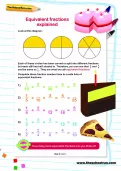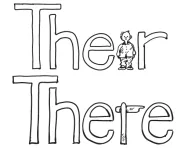Important update from TheSchoolRun
For the past 13 years, TheSchoolRun has been run by a small team of mums working from home, dedicated to providing quality educational resources to primary school parents. Unfortunately, rising supplier costs and falling revenue have made it impossible for us to continue operating, and we’ve had to make the difficult decision to close. The good news: We’ve arranged for another educational provider to take over many of our resources. These will be hosted on a new portal, where the content will be updated and expanded to support your child’s learning.
What this means for subscribers:
- Your subscription is still active, and for now, you can keep using the website as normal — just log in with your usual details to access all our articles and resources*.
- In a few months, all resources will move to the new portal. You’ll continue to have access there until your subscription ends. We’ll send you full details nearer the time.
- As a thank you for your support, we’ll also be sending you 16 primary school eBooks (worth £108.84) to download and keep.
A few changes to be aware of:
- The Learning Journey weekly email has ended, but your child’s plan will still be updated on your dashboard each Monday. Just log in to see the recommended worksheets.
- The 11+ weekly emails have now ended. We sent you all the remaining emails in the series at the end of March — please check your inbox (and spam folder) if you haven’t seen them. You can also follow the full programme here: 11+ Learning Journey.
If you have any questions, please contact us at [email protected]. Thank you for being part of our journey it’s been a privilege to support your family’s learning.
*If you need to reset your password, it will still work as usual. Please check your spam folder if the reset email doesn’t appear in your inbox.
How to improve your child's memory

Memory is fundamental to learning, so improving your child's ability to remember things is going to give them a huge advantage for the rest of their life. When it's fun and easy for your child to commit information to memory, your child's confidence will get a boost.


Start a unique learning programme!
- Weekly programme for each school year
- Worksheets sent direct to your inbox
- Keeps your child's learning on track
Below are some tips that will help your child to become better at remembering just about anything. Try them out for yourself and then share the knowledge with your child!
Memory-improver 1: Make it fun
Most kids find it difficult to remember things for school not because they don't have the ability to do it, but because they find the information boring and uninteresting. When committing information to memory the key is to shift the approach. Rather than coming at the task as a difficult and tedious memory exercise, it should be approached more as a fun exercise in imagination.
Memory-improver 2: Visualise
Take whatever it is that you are trying to remember and try to turn it into a simple image or a series of interesting pictures. We are very good at remembering things that we see!
Memory-improver 3: Involve additional senses
As well as building a picture in your head, try to involve as many additional senses as you can while trying to commit a piece of information to memory. The more senses you involve, the more of your brain you'll be using and the more connections to the information you'll be building in your mind, so it will be much easier to remember.
Memory-improver 4: Flex your creativity
Next, use your creativity to make what you are seeing and experiencing in your mind crazy, unusual and extraordinary. This is important; a small imaginative effort will reap big rewards, as we all tend to remember things that are crazy, unusual, and extraordinary in some way!
Memory-improver 5: Build a story
Keep the first four tips in mind when you build a story that incorporates the information that you need to remember.
Let me illustrate by having you commit to memory the following random list of words: monkey, iron, rope, kite, house, paper, shoe, worm, envelope, pencil.
Instead of memorising the list with brute force repetition (saying it again and again until it sticks in your mind), relax and have fun while visualising the "story" that I describe.
Picture a (monkey). This monkey is dancing around making monkey noises. Now the monkey pics up an (iron). The iron starts to fall, but a (rope) attaches itself to the iron. You look up the rope and see the other end attached to a (kite). The kite now smashes into a (house). You notice that the house is covered in (paper). A (shoe) appears out of nowhere and starts to walk on the paper. The shoe really smells, so you look inside to find a (worm) crawling around. The worm now jumps into an (envelope) that appears above it. A (pencil) starts to write on the envelope.
Read through the story just one more time while visualising everything described; see it like a movie or cartoon playing in your head. Now, go ahead and recite all of the random words from memory by simply going through the story in your mind and recalling each major object that you encounter. This simple technique works amazingly well and will be a much more fun and interesting way for your child to go about committing things to memory!
These tips are only the beginning. I've spent a decade helping kids with proven techniques for remembering formulae, vocabulary/terminology, facts/figures, dates, names, presentations, and much more. I know that your child is capable of developing a superb memory with just a little bit of fun training and practice!
Chester Santos, "The International Man of Memory", is an award-winning international speaker, US memory champion, and author of Instant Memory Training for Success.








